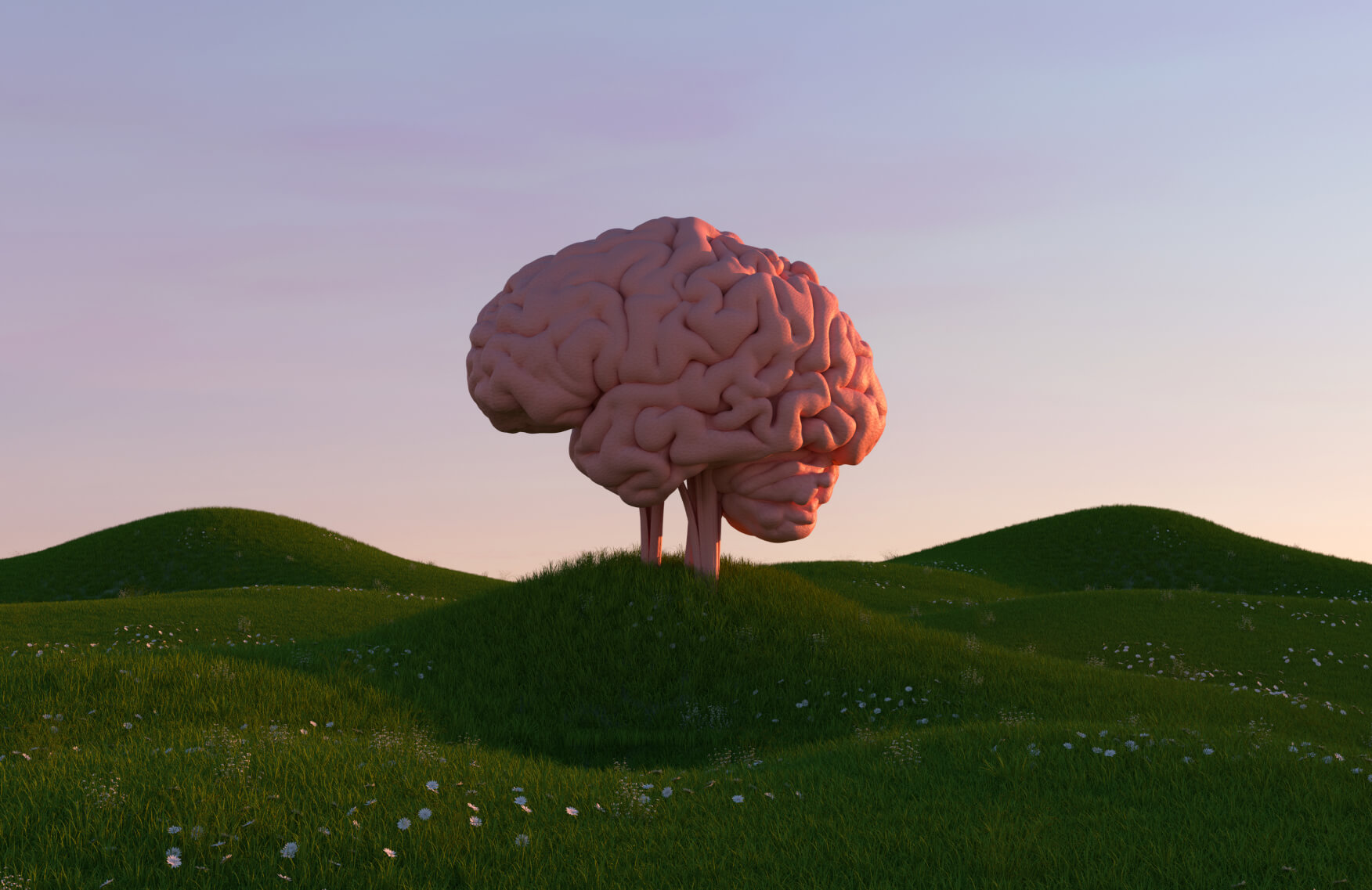How to build brain resilience for a happier, healthier life

Everyone handles stress differently. While one person may experience a brief setback before picking themselves back up, others may find themselves falling into a spiral of negative thoughts with an inability to look forward. The truth is, the way your brain handles stressful situations plays a role in how resilient of a person you are. We tapped Alyssa Scolari, a licensed counselor and owner of See You Through It Counseling, to explain how our brains are wired to deal with stressful situations—plus how you can build your mental strength to become more resilient.
What is brain resilience?
One of the most remarkable functions of our brain is that it’s able to protect us from threats via a “fight, flight or freeze” response. “Historically, this was instrumental for our ancestors to help them navigate life-threatening situations, such as encounters with predators,” Scolari says. While we may be facing different situations today, our brain’s reaction to these stressors is still similar. “When we perceive a potential threat or challenge, our brain’s amygdala, or its early warning system, springs into action, evaluating the situation and sounding the alarm if necessary,” Scolari notes. “This alarm triggers the release of stress hormones, primarily cortisol and adrenaline, preparing our body to either face the threat head-on (fight), retreat from it (flight) or momentarily immobilize (freeze).”
At the same time, our brain’s prefrontal cortex, or the area responsible for higher-order thinking, reasoning, and decision-making, has a hand at assessing the situation more rationally. “Ideally, this region should moderate the amygdala’s reactive impulses, ensuring our responses are measured and appropriate—however, when under chronic stress, this balancing act can become skewed.” That’s where brain resilience comes into play. If you’re someone who deals with chronic stress, your prefrontal cortex’s inhibitory influence on the amygdala may be compromised. When this happens, your reactions to stressors can become more pronounced and less controlled. “You might overreact to minor challenges, feel perpetually anxious or struggle to make decisions,” Scolari adds.
How can you gain brain resilience?
Scolari compares our brains to Play-Doh, describing how our brains are flexible, adaptable and can be reshaped over time based on what we experience and learn. “This incredible ability is known as ‘neuroplasticity’, and by tapping into this natural power, we can train our brains to handle life’s challenges in a more balanced way,” she says.
To do this, you may try consciously steering your thoughts toward more positive or constructive directions, particularly when you’re feeling defeated, says Scolari. Or, you may try engaging in a new experience, whether that means picking up a new hobby, taking a different running route or exploring a new town. “Our brains thrive on novelty, and these fresh experiences keep our brain cells active and connected,” Scolari adds.
Dating back from ancestral times, humans are inherently social creatures. In fact, our brains are hardwired for it. According to Scolari, authentic, meaningful relationships offer a wealth of cognitive and emotional benefits that are vital in building brain resilience. “When we engage in genuine social interactions, our brains are in a state of heightened activity,” she says. “Conversations challenge our cognitive functions (from comprehension and memory recall to decision-making and emotional regulation) while sharing stories, debating ideas or simply laughing over shared memories can stimulate various brain regions, keeping them active and agile.” Simply put, social connections are like a cognitive workout that helps keep the mind sharp.
It also helps to surround yourself with diverse perspectives and people, as having a broadened perspective nurtures empathy, a crucial element in emotional intelligence, Scolari says. “A brain well-versed in empathy is more resilient, as it can process emotions more effectively and respond to challenges with greater compassion and understanding.”
According to Scolari, our brains are particularly sensitive to what we eat. Just like a car needs the right fuel to operate smoothly, our brain depends on specific nutrients to function at its peak. “Omega-3 fatty acids, found in fatty fish like salmon, walnuts and leafy vegetables, are essential for cognitive function and memory while antioxidant-rich foods, such as blueberries, spinach and dark chocolate, combat oxidative stress, a known contributor to age-related cognitive decline,” Scolari notes. “Additionally, foods high in vitamins B, C and E, as well as minerals like magnesium and zinc, play vital roles in supporting neurotransmitter function and neural communication.”
The views expressed in this article do not necessarily represent the views of Murad, and are for informational purposes only, even if the advice of physicians and medical practitioners are included. This article is not a substitute for professional medical advice, diagnosis or treatment, and should not be considered specific medical advice.






